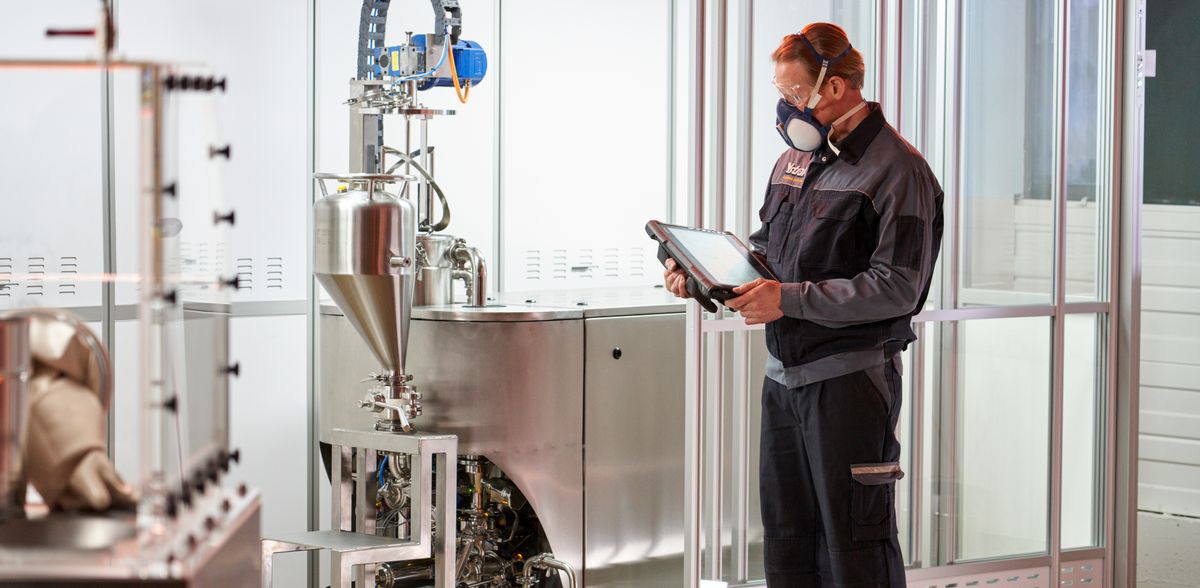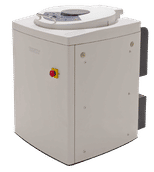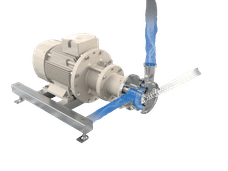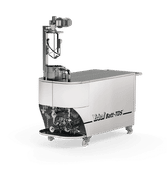ystral cooperates with Fraunhofer FFB in the battery cell research production project
ystral is supporting the battery cell research production project in Münster with a mixing and dispersing plant in the FFB PreFab, which will be used to test manufacturing processes and new recipes for battery cell production.
The Fraunhofer FFB being built as part of the project will enable industrial companies along the entire value chain of battery cell production to test selected process steps or complete production processes in terms of material, production technology, energy and resource efficiency, quality, throughput and costs and optimise them for their purposes. The first building of the research factory currently under construction, the FFB PreFab, will contain a sample line for small-scale battery cell production. The knowledge gained from this will be used for a test line for medium-scale production research and a production line for large-scale battery cell production, which should be ready for use in another building - the FFB Fab - from 2025.
R&D PLANT WITH YSTRAL BATT-TDS DISPERSING SYSTEM
The core equipment installed in the FFB PreFab will be the YSTRAL Batt-TDS Navi, a dispersing system for the production of lithium-ion electrode slurries with batch sizes up to 12 l, which has been specially developed for R&D purposes and enables the entire slurry mixing process to be realised within a few minutes. "The YSTRAL Batt-TDS draws powder materials dust-free into a liquid stream under vacuum, enabling dispersion of powder particles within milliseconds," says ystral managing director David Manke, who has been involved in the development of the Batt-TDS from the beginning. "The dispersion of polymeric binders, conductive carbons and abrasive active materials is thereby adapted according to their specific physical properties and structures." In addition to the Batt-TDS Navi, the ySTRAL Batt-TDS is also available in three other sizes for medium- and large-scale manufacturing processes for cathode or anode slurries with a capacity of up to 5,000 L/h.
In addition to the YSTRAL Batt-TDS Navi, the ystral plant in the FFB PreFab also includes handling equipment for processing the powdered raw materials. In an isolator, bags containing hazardous materials such as NMC can be safely opened and the powdered raw materials weighed. The powder materials are then fed to the Batt-TDS without ambient contact via a docked powder hopper. Part of the ystral system is also a flexibly expandable control system that allows connection to higher-level control systems of the research factory. The R&D system is completed by several mobile buffer tanks with installed mixers and a capacity of up to 50 litres. The slurry produced can also be pumped directly from the Batt-TDS to a downstream coater via a pipeline.
GREAT OPPORTUNITY FOR GERMANY AS AN INDUSTRIAL LOCATION
According to current planning, ystral will accompany the first tests of battery manufacturers in the research factory in Münster from the end of 2023 and be present on site with training courses and seminars. "The battery cell research production project is a very great opportunity for Germany as an industrial location to become a pioneer in a key technology of the 21st century, to avoid dependencies in the supply chain and to set a new standard for sustainable and energy-efficient battery production," says Manke. "We are pleased to be able to help shape this development with our mixing and dispersing technologies."
Other news from the department business & finance
These products might interest you
Most read news
More news from our other portals
See the theme worlds for related content
Topic World Battery Technology
The topic world Battery Technology combines relevant knowledge in a unique way. Here you will find everything about suppliers and their products, webinars, white papers, catalogs and brochures.

Topic World Battery Technology
The topic world Battery Technology combines relevant knowledge in a unique way. Here you will find everything about suppliers and their products, webinars, white papers, catalogs and brochures.





























































